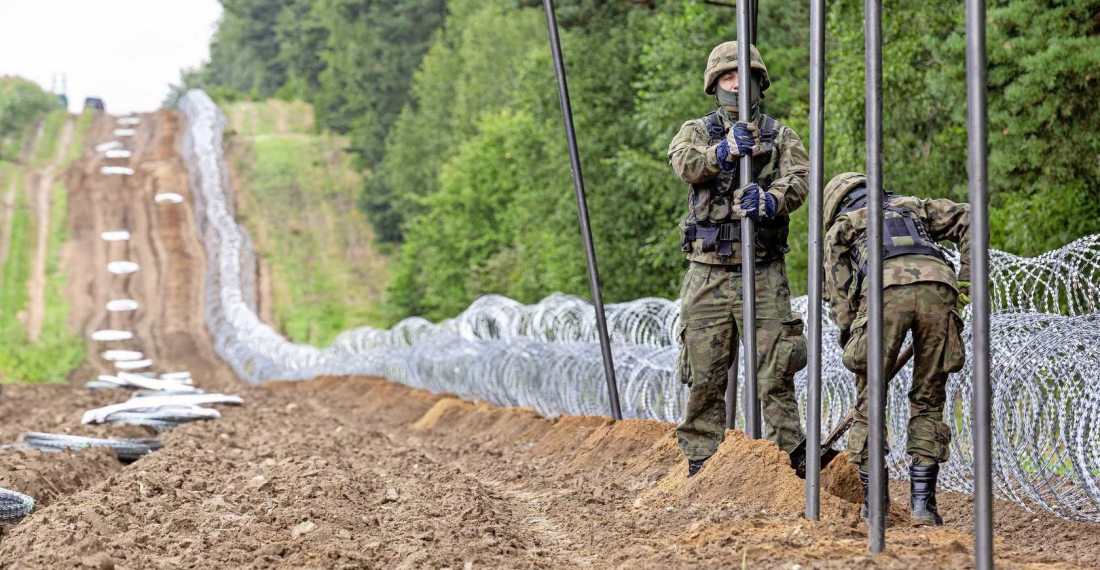EU Member State Poland has doubled the number of soldiers guarding its border with Belarus from 3.000 to 6.000. The soldiers meant to prevent large numbers of migrants from Belarus from entering Poland illegally.
"The soldiers provide support to the Border Guards by protecting the country's border and not allowing it to be illegally crossed", said Minister of National Defence, Mariusz Błaszczak. The number of soldiers is rapidly increased as more and more people want to reach the European Union via Belarus.
According to Brussels, Belarus has been admitting migrants from countries such as Syria, Iraq, Yemen and Iran for several months and then does not stop them from crossing illegally into neighbouring countries that are members of the European Union. The President of Belarus, Alexander Lukashenko, is doing this in response to EU sanctions imposed after demonstrations were quashed.
Poland recently declared a state of emergency in all border regions with Belarus. Reports suggest many migrants are also being directed to other neighbouring countries of Belarus, such as Lithuania.







